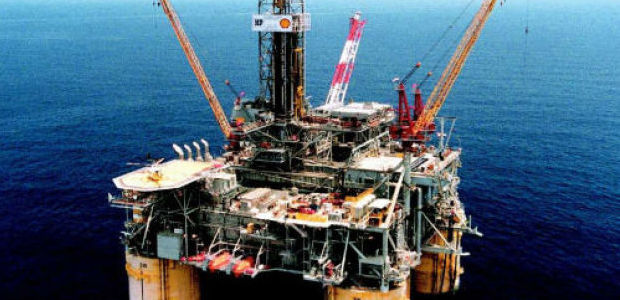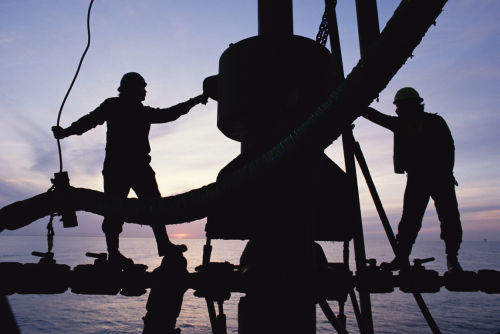
3 years removed from spill, industry growing
September 25, 2013Audit: State could be losing oil royalty money
September 25, 2013Deep-water drilling is booming and billions of dollars are flowing through the Gulf of Mexico’s waters.
But for the rigs closest to shore, things aren’t nearly as peachy. Shallow-water drilling has sustained huge losses since the Deepwater Horizon oil spill.
Local industry leaders expressed concern this week for the industry’s future and sustainability in the shallow water amidst stringent post-BP regulations that have steep price tags and are forcing companies out of the industry because of a low profit margin.
“The Gulf of Mexico has certainly come back in the deepwater, but the shallow water is not rebounding, and that’s a concern,” said Don Briggs, president of the Louisiana Oil & Gas Association. “They have not come back as well as we would have liked, and they are really struggling right now.”
When the Deepwater Horizon exploded and the oilfield was shut down by the government, everyone within the industry knew that change was coming to the Gulf.
Once the moratorium was lifted, the industry’s new rules and regulations started to take hold – most notably stringent safety measures, as well as permitting and insurance costs going on the rise.
For deep-water projects that may net billions of dollars in profit, the new price tags are merely a drop in a bottomless bucket – which is why deep-water work is currently booming and is exceeding 2010’s pre-spill levels.
But in shallow water where the total profit isn’t nearly as high, the new price tags are a threat to industry.
“Insurance rates are really, really high,” Briggs said. “And we have to remember that the shallow water is an old province for drilling, so there’s been a lot of drilling there. There’s still production left there, but it’s not production that can have a big expense to it. It’s production that needs to be low-cost.
“And right now, it’s just not a low-cost operation. We have to be able to operate in shallow water at a much cheaper rate than we’re doing today. Because right now, it’s just not efficient.”
Louisiana Mid-Continent Oil and Gas Association President Chris John agreed with Briggs’ statements and took it even further.
John said that the new rules in place have taken away the opportunity for independently owned companies to survive because they lack the financial backing.
He said that this creates a situation where the power entities control all of the shallow-water work.
“The dynamics of who can and who can’t play the game in the shallow water side have really changed,” John said. “The independents really don’t stand much of a chance anymore compared to what they used to do. Fewer companies involved is not a good thing at all for us. But that’s just the way that our Gulf is today.”
Locally, the crunch has already been felt. McDermott International announced this past summer that it will close its Morgan City fabrication yard – a move designed to take the company’s work to a solo office in Mexico.
McDermott is going to maintain its lease on the property to keep tabs on industry trends and economic conditions.
But business leaders and politicians alike said when the closure was announced that it was because of the shift in the industry.
“The physical limitations of needing deep water are very difficult to overcome,” McDermott Vice President Steve Roll told the Tri-Parish Times in August. “So to look for other opportunities and other uses for this facility … would probably be more realistic for us to look at.”
“We have worked closely with local and corporate officials of McDermott for the past two years in an attempt to find a way to keep this year open,” Gov. Bobby Jindal said when the closure was announced. “Unfortunately, the water depth there has made it very difficult for them to compete for heavy deepwater projects.”
So before conditions get worse, Briggs said he hopes that the rule makers consider changes within the industry.
He said that after seeing how much the government’s rules have slowed the industry, he believes more companies are beginning to whisper and change may be possible in the future.
“I don’t know it’ll get rectified,” Briggs said. “There would need to be a different set of regulations that would be in place for the shallow water gulf versus the deep-water Gulf. I think companies are starting to look at that and regulatory agencies are starting to look at that possibility, too, because these regulations are definitely having a huge impact.”
But John wasn’t as optimistic. He said that he can’t envision a world where the rules of today are loosened up.
“I don’t see a scenario after BP where any rules or regulations are lessened or made any more lenient,” John said. “Depending on politics and elections, by the time we get our next president, they may actually get more tightened. … That’s just something we’ll have to wait and see.”
While deep-water drilling along coastal Louisiana is a booming business, companies seeking oil in shallow-water areas are having a more difficult time. The government’s rule changes in the wake of the Deepwater Horizon spill have slowed the industry, according to Don Briggs, president of the Louisiana Oil and Gas Association.










